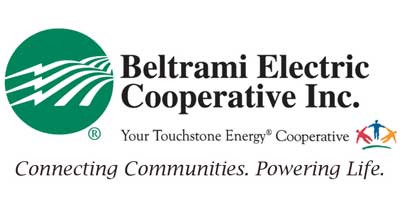
Each spring, electric cooperative leaders from across the country head to Washington, D.C., to advocate for rural communities—and this year, Beltrami Electric Cooperative was proud to be part of that effort. I recently traveled to Capitol Hill with members of our board to meet with Minnesota’s congressional delegation and join more than 60 representatives from Minnesota electric cooperatives. Together, we stood alongside more than 2,000 directors, CEOs, and employees from electric co-ops across the nation for the National Rural Electric Cooperative Association (NRECA) Legislative Conference.
These meetings are a vital part of how we give our member-owners a voice in national energy policy. As demand for electricity grows and federal regulations evolve, the laws passed in Washington increasingly impact our ability to deliver safe, affordable, and reliable power to our communities. Here’s a look at the priority issues we discussed with our elected officials.
Smart Energy Policy for a Growing Nation
America’s energy needs are increasing at the fastest pace in more than 20 years, fueled by the growth of data centers, manufacturing, and electrification. According to the North American Electric Reliability Corporation (NERC), peak power demand will rise more than 18% in the next decade. At the same time, dependable power plants are being retired faster than they can be replaced. Electric cooperatives like Beltrami Electric are working hard to meet today’s needs while planning for tomorrow. But we need smart, supportive policies from Washington to succeed.
Permitting Reform & Grid Reliability
The federal permitting process for building new energy infrastructure is slow, bureaucratic, and costly. Delays in securing permits for generation and transmission projects put reliability at risk and drive up costs for co-ops and consumers. We’re asking Congress to pass permitting reform, including judicial streamlining, to help us build the infrastructure we need on a reasonable timeline.
We also voiced deep concern about the EPA’s recently finalized power plant rule. This regulation pushes for the premature shutdown of reliable power plants and forces unproven technologies on an unrealistic timeline. It’s a threat to grid reliability and, ultimately, to the safety and well-being of the communities we serve. We asked lawmakers to repeal this unworkable rule and support an energy transition grounded in innovation, not ideology.
Protecting Hydroelectric Power
Hydroelectric energy is one of our nation’s most reliable and cleanest sources of electricity. However, an agreement made during the previous administration threatens to dismantle the Lower Snake River dams—jeopardizing power supply in the Northwest. We urged policymakers to rescind that memorandum of understanding and stand behind hydro as a vital part of our national energy mix.
Wildfire Prevention and Infrastructure Safety
Wildfires pose an increasing threat to electric infrastructure. We urged lawmakers to support the Fix Our Forests Act, which would give cooperatives the tools needed to better manage vegetation around power lines and reduce wildfire risk.
Investing in Rural Communities
Electric co-ops like Beltrami Electric rely on the USDA’s Rural Utilities Service (RUS) Electric Loan Program to finance infrastructure projects. Because these loans are repaid with interest, the program actually returns money to the federal government. We’re asking our delegation to sign a letter to support full funding for rural electric infrastructure.
Fair Access to Energy Tax Credits
Before 2022, electric cooperatives were shut out of tax incentives that investor-owned utilities could use. Thanks to changes in law, we now have access to “elective pay” tax credits that support investments in renewable energy, grid upgrades and other innovations. We asked lawmakers to protect our access to these credits and ensure co-ops continue to compete on a level playing field.
Protecting Grant and Innovation Programs
Through programs like New ERA, PACE, GRIP, and RMUC, electric co-ops are building smarter, more resilient systems—restoring nuclear plants, deploying new technologies, and protecting against cyber threats. These voluntary USDA and Department of Energy programs are critical to rural energy innovation, and we’re urging lawmakers to resist any proposed funding cuts.
Disaster Recovery and Resiliency
Finally, we asked lawmakers to protect FEMA’s Public Assistance Program, which helps electric co-ops restore power quickly after natural disasters. Without FEMA support, recovery times and costs would rise sharply—particularly in the small and rural communities we serve.
Our Commitment to You
The conversations we had in Washington were driven by one mission: protecting your access to safe, reliable, and affordable electricity. From maintaining essential infrastructure to preparing for future energy demands, we will continue to advocate for you—our member-owners—every step of the way.
Your voice matters, and we are proud to represent it where it counts most. Thank you for the privilege of serving you.
